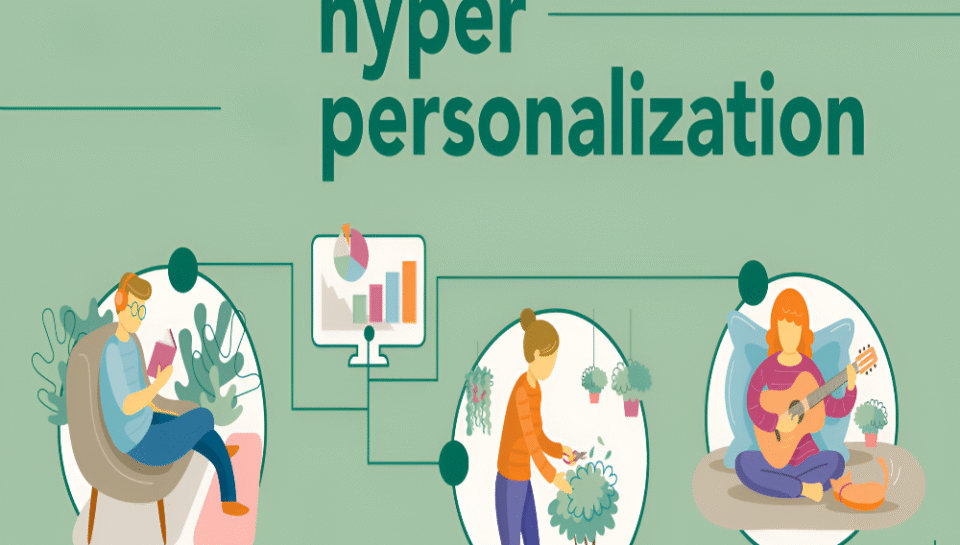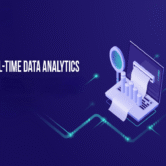
Establish how IT enables hyper-personalized marketing for new businesses.
Introduction
In the digital age, consumers expect more than generic advertising—they seek personalized experiences that align with their preferences, behavior, and values. For new businesses aiming to build strong relationships with their audience, hyper-personalized marketing has become a key differentiator. Enabled by modern IT infrastructure, tools, and data capabilities, hyper-personalization allows businesses to deliver tailored content, product recommendations, and real-time interactions that resonate with individual users. By leveraging the power of IT, startups can create marketing experiences that are not only relevant but also highly impactful.
Harnessing Customer Data for Precision Targeting
At the heart of hyper-personalized marketing is data—specifically, the ability to collect, process, and interpret customer information in real time. IT systems play a crucial role in capturing behavioral data from websites, mobile apps, social media, and transaction histories. Through customer data platforms (CDPs) and integrated analytics tools, new businesses can segment audiences based on their interests, location, device usage, and purchasing patterns. This granular understanding allows marketers to move beyond demographic targeting and deliver content that speaks directly to individual needs and behaviors.
Automating Personalization with Marketing Technology
Information technology enables automation at scale, which is essential for executing hyper-personalized campaigns efficiently. Marketing automation platforms powered by IT infrastructure use AI and machine learning algorithms to determine the best time, channel, and content for engaging each user. Whether it’s sending personalized emails, offering product suggestions on e-commerce platforms, or displaying dynamic ads, these automated systems adapt messaging in real time based on evolving user profiles. This precision helps startups deliver the right message to the right person at the right moment, significantly increasing engagement and conversion rates.
Enabling Real-Time Interactions and Dynamic Content
Modern IT systems support the delivery of real-time, context-aware interactions. Chatbots integrated with CRM systems can provide tailored responses based on user history. Personalized website experiences can be dynamically generated as visitors navigate a site, presenting relevant content or offers based on browsing behavior. With IT-enabled content management systems, businesses can adjust visuals, messaging, and layout depending on who is viewing the page—transforming static websites into dynamic, customer-centric interfaces.
Integrating Multi-Channel Marketing for Unified Experiences
Today’s consumers interact with brands across multiple touchpoints—websites, mobile apps, social media, email, and more. IT infrastructure allows new businesses to integrate these channels through centralized platforms, ensuring a unified and consistent user experience. Customer data flows seamlessly across touchpoints, enabling marketers to continue personalized conversations no matter where the interaction takes place. This multi-channel integration enhances brand consistency and keeps users engaged throughout the customer journey.
Improving Campaign Performance Through Analytics
IT empowers startups to monitor, evaluate, and optimize marketing campaigns with precision. Advanced analytics dashboards provide real-time insights into how personalized content is performing across segments. Marketers can identify which messages, formats, or channels are generating the most engagement and use that knowledge to refine future campaigns. This iterative improvement process ensures that marketing efforts remain data-driven, efficient, and aligned with evolving customer expectations.
Supporting Scalable Growth with Cloud and AI Tools
Cloud-based marketing solutions and AI-powered tools make hyper-personalization scalable for startups. Instead of requiring significant upfront investment in IT infrastructure, new businesses can access these technologies on-demand through Software-as-a-Service (SaaS) platforms. As customer bases grow, these systems scale effortlessly, maintaining performance while expanding personalization capabilities. Startups can leverage predictive analytics to anticipate customer needs, optimize customer journeys, and build long-term loyalty—all without overextending internal resources.
Building Deeper Customer Relationships and Brand Loyalty
Ultimately, IT-enabled hyper-personalization is about more than just increasing sales. It’s about building meaningful relationships with customers based on trust, relevance, and value. When users feel understood and valued, they are more likely to engage with the brand, make repeat purchases, and advocate for the business. This emotional connection is especially important for new businesses seeking to establish themselves in competitive markets. IT systems provide the foundation for delivering consistent, memorable experiences that drive both customer satisfaction and brand equity.
Conclusion
Information technology is the engine that powers hyper-personalized marketing, enabling new businesses to connect with customers in deeper, more impactful ways. From data collection and automation to multi-channel integration and real-time engagement, IT provides the tools and intelligence required to deliver tailored experiences at scale. In a business landscape where personalization is no longer optional but expected, startups that embrace IT-driven marketing strategies are better positioned to attract, retain, and delight their customers—fueling sustainable growth and competitive advantage.
Hashtags
#HyperPersonalization #ITinMarketing #DigitalTransformation #NewBusinessGrowth #PersonalizedMarketing #DataDrivenMarketing #CustomerExperience #MarketingTechnology #BusinessInnovation #TargetedAdvertising #AIinMarketing #CustomerInsights #MarketingStrategy #SmallBusinessSuccess #TechForMarketing #ConsumerBehavior #MarketingAutomation #BusinessDevelopment #BrandLoyalty #FutureOfMarketing





